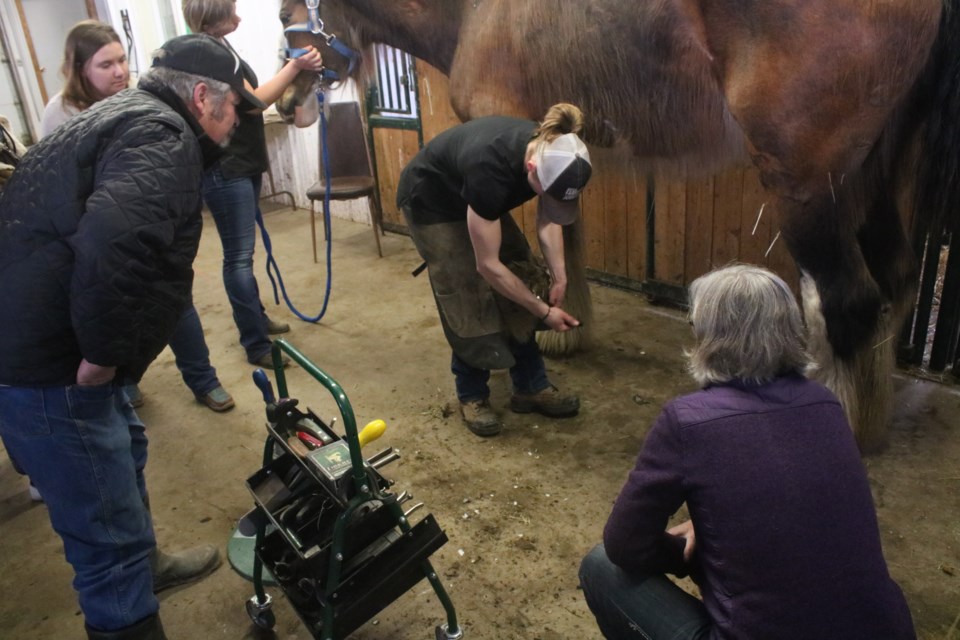Horse owners gathered at Tail Winds Stables South of Yorkton Sunday for some pointers on health care from veterinarians and farrier Dr. Cindy Lukianchuk.
“We’re just providing some information sort of hands-on,” said Lukianchuk whose practice is at Russell, MB.
The morning focused on the pregnant mare, and the foal once it is born.
“Its knowing what you should be doing,” said Lukianchuk, adding with a smile it can be a case of “knowing when to panic.”
In the case of delivering a foal Lukianchuk said the most basic thing is to understand “how long should it take” and if it is not going as expected then how long to wait before making the call for help “or before you intervene.”
Lukianchuk added that generally mares foal without help, with likely only 10 per cent requiring some level of assistance.
When a bad situation does arrive in a pregnancy, or a delivery, Lukianchuk said it is important to know “when to call a vet,” but added that a veterinarian is not always going to be available at precisely when someone makes an emergency call.
So horse owners should have what is essentially an emergency bag containing what can be used “when you don’t have time to call a vet.”
In the afternoon Lukianchuk donned her farrier apron and provided some insights to the attendees regarding proper foot care.
In general, Lukianchuk said it can be at times difficult “to find a farrier to come out” when needed.
It can be equally challenging to find qualified farriers.
“You don’t technically have to be certified,” she said, adding there are courses in the United States, and one at Olds College in Alberta where training can be taken. Once trained, there are organizations which provide accreditation as a journeyman farrier.
In Lukianchuk’s case she said she ended being a farrier after working at a veterinarian clinic in Swift Current.
“I was taking a lot of equine cases,” she said, adding she saw foot problems, and decided learning to be a farrier would allow her to make better decisions on the horse’s care.
For example, the use of therapeutic shoes can often drastically improve a horse’s health, without resorting to other veterinarian care options, she said.




